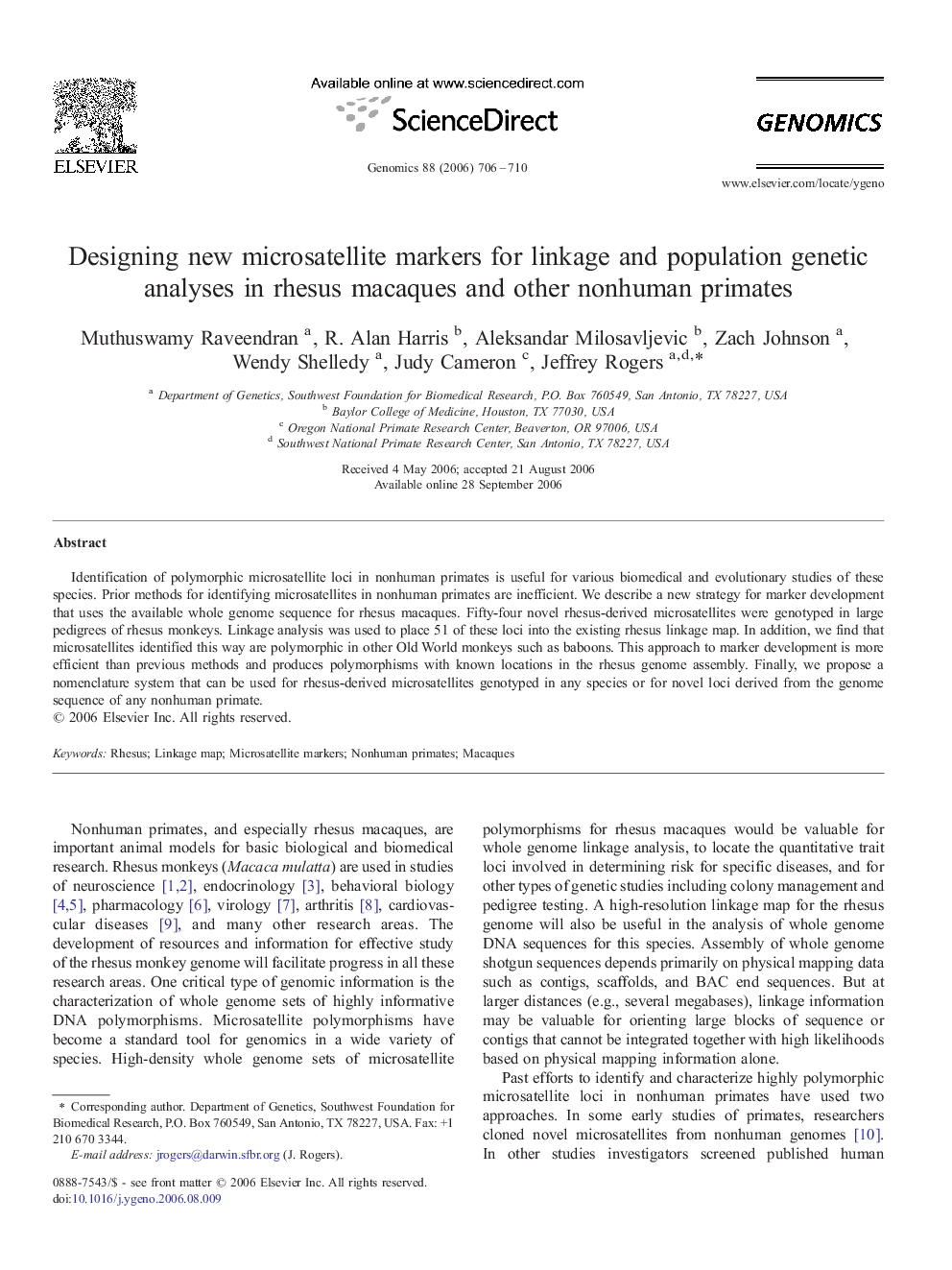| Article ID | Journal | Published Year | Pages | File Type |
|---|---|---|---|---|
| 5908037 | Genomics | 2006 | 5 Pages |
Identification of polymorphic microsatellite loci in nonhuman primates is useful for various biomedical and evolutionary studies of these species. Prior methods for identifying microsatellites in nonhuman primates are inefficient. We describe a new strategy for marker development that uses the available whole genome sequence for rhesus macaques. Fifty-four novel rhesus-derived microsatellites were genotyped in large pedigrees of rhesus monkeys. Linkage analysis was used to place 51 of these loci into the existing rhesus linkage map. In addition, we find that microsatellites identified this way are polymorphic in other Old World monkeys such as baboons. This approach to marker development is more efficient than previous methods and produces polymorphisms with known locations in the rhesus genome assembly. Finally, we propose a nomenclature system that can be used for rhesus-derived microsatellites genotyped in any species or for novel loci derived from the genome sequence of any nonhuman primate.
